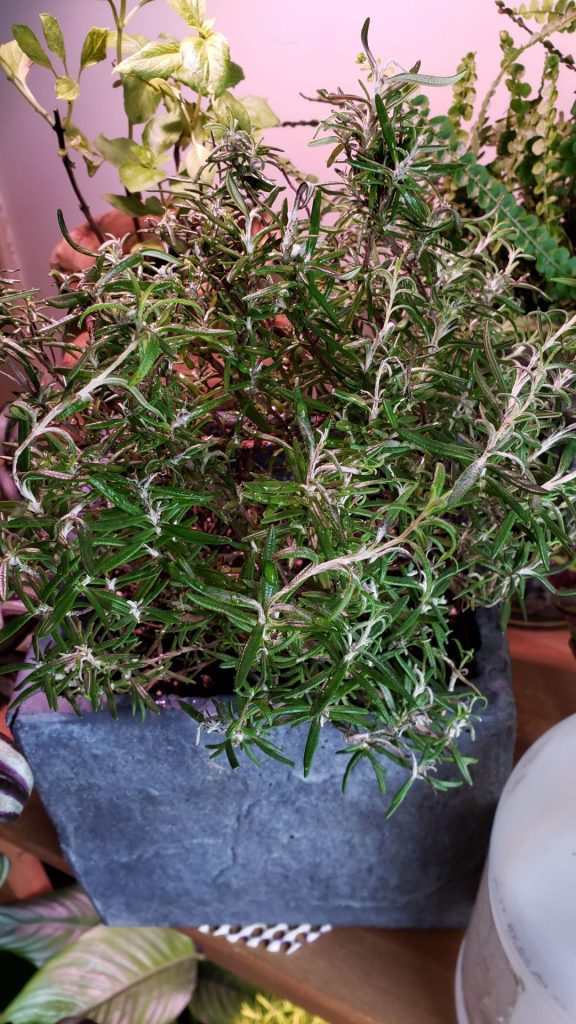
Hello :-DI planted a sorrel about 3 years ago and it comes back every year but something keeps eating it so I hardly ever get any. This year is no exception. I saw it poking up about a week ago but before any leaves come out it is eaten up and there are just a few little stems. Now the stems are even bein eaten. I don’t see any evidence of pests. Help!!Last year I got lemongrass. It grew but not wonderfully. I potted it and brought it in for the winter and it stayed alive but is pretty spindly. Can you give me some suggestions for the summer to help this plant thrive? Same with rosemary plant? Did not do great in the summer, potted it and brought it in for the winter. It’s alive but not great.Pics of both attached.Thanks so much for your consideration.
Thank you for contacting the Toronto Master Gardeners
Sorrel (Rumex acetosa) is a leafy green that is grown for its tart lemony flavour that is great when added in soups or salads. Sorrel plants prefer the cool seasons of spring and fall and will quickly bolt when the weather heats up. Plants grow best in full sun. However if you plant in an area with partial shade from the hot afternoon sun, it will keep the plant from bolting longer into summer. As with most leafy green vegetables a soil rich in organic matter with good drainage will produce maximum yield.
The main pests for this plant include aphids, snails and slugs. Check early in the morning to see if you can see any slime trail or slugs, snails on the plant. We receive numerous questions on how to rid the garden of these pesky critters. Solution for Slugs is from one of our archived posts. Another pest that might be eating your young sorrel leaves at this time of year are rabbits looking for young tender shoots. If this is the case, placing a chicken wire cage around your plant is your best defence.
Lemon grass is a tropical plant that is not tolerant of our cold winters. Like most herbs this plant does best in full sun ( 6-8 hrs) in well draining moist organic rich soil. Unlike most grasses, lemongrass is not a drought-tolerant plant so make sure to keep the roots constantly moist. By adding a layer of mulch around your plant, you will help keep the soil moist, will aid in weed suppression and will enrich your soil as the mulch breaks down. Once you are ready to bring the plant indoors for the winter ( before the night time temperature reaches 10C) you can divide the plant into single root divisions and plant in a small container. Each leaf fan will be attached to a narrow bulb-like base with roots attached, and each one of these has the potential to become a new clump. Once planted, cut the leaves back to 8cm and place the container on a sunny window sill where it will receive direct sunlight ( south facing). It can be planted outdoors once the night time temperature is around 15C.
Rosemary (Rosmarinus officinalis) is a perennial herb that likes a warm, sunny spot and well drained soil. They are sensitive to transplanting and can take time to settle in a new location. Rosemary is resistant to most diseases and pests and does not usually require fertilizers. We receive numerous questions on how to overwinter Rosemary Overwintering Rosemary is from one of our earlier posts.
Hope this was helpful

